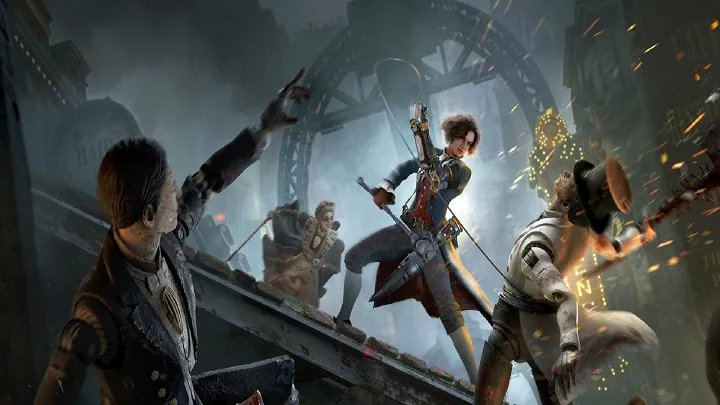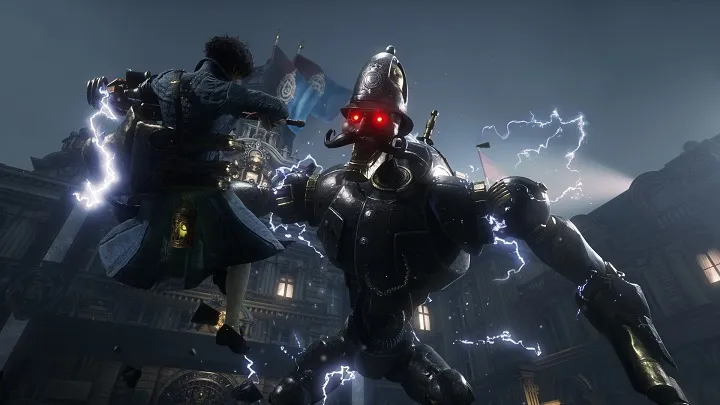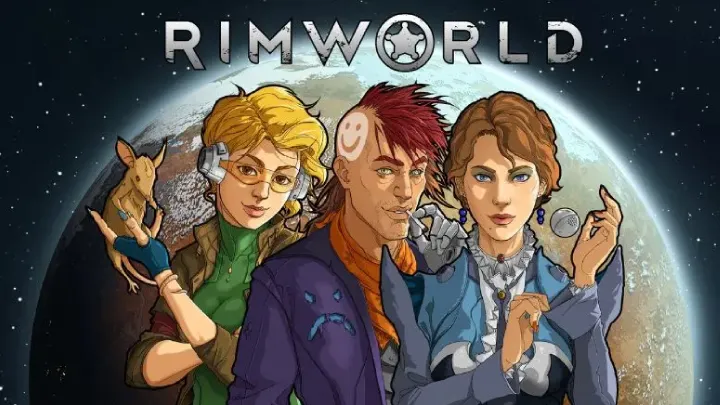Lies of P, developed by Neowiz and Round8 Studio, is a soulslike action RPG that dares to transform one of the most well-known children’s tales into a harrowing gothic nightmare. Instead of a whimsical wooden boy who dreams of becoming human, players step into the role of P—a puppet warrior—trapped in the plague-ridden city of Krat. Inspired by the Belle Époque period, the world is steeped in elegance and decadence, yet corrupted by horror and despair. This striking setting forms the backdrop for a story that is as much about lies, choices, and identity as it is about brutal combat.
A City of Shadows and Elegance
The city of Krat is both beautiful and terrifying. Once a hub of art, science, and innovation, it has now collapsed under the weight of plague and madness. Streets are littered with mechanical corpses, twisted experiments, and infected humans driven to insanity. Every district tells its own story—lavish opera houses, once vibrant markets, and grand ballrooms now lie in ruin. The developers have crafted an environment that feels alive, haunting, and suffocating, immersing players in a place where elegance clashes with decay.
Exploring Krat is not just about survival but about piecing together fragments of its tragic downfall. The environmental storytelling encourages players to slow down, observe, and connect the dots between the city’s rise and its cursed present.
Challenging and Rewarding Combat
At its heart, Lies of P is a soulslike experience. Combat is deliberate, punishing, and rewarding. Every swing of the blade requires precision, every dodge must be perfectly timed, and every enemy encounter feels like a duel of patience and skill. Ordinary foes can overwhelm the unprepared, while bosses tower as grotesque, unforgettable monsters that test both reflexes and strategy.
The game demands that players learn enemy patterns, adapt to new threats, and master mechanics such as perfect guarding and stamina management. Unlike some action RPGs that allow button mashing, Lies of P punishes recklessness, ensuring victory feels earned. Defeating a difficult boss brings an unmatched sense of triumph, rewarding players for persistence and growth.

Weapon Customization and Strategy
One of the most innovative systems in Lies of P is its weapon assembly mechanic. Instead of fixed weapons, players can mix and match different blades and handles, creating hybrid tools of destruction. A heavy sword blade can be paired with a nimble handle for balance, or a fast rapier blade can be placed on a sturdy grip for reach and resilience.
This mechanic not only encourages experimentation but also allows for highly personal combat styles. Each weapon combination changes attack animations, speed, and stamina cost, letting players fine-tune their approach. The crafting system pushes players to think like engineers of war, turning every fight into an opportunity to test new strategies.
The Power and Consequence of Lies
Perhaps the most striking mechanic in Lies of P is the ability to lie. Unlike traditional RPG dialogue choices, lying in this game has profound consequences. At key moments, players must decide whether to speak the truth or weave a falsehood. These choices affect relationships, shape the narrative, and alter the very nature of P’s existence.
The theme of lies ties directly to Pinocchio’s original fable, but here it carries a darker twist. Every lie moves P closer to becoming more human—an evolution that comes at both a cost and a revelation. Multiple endings based on truth and deception ensure replayability, making players reflect on the morality of their decisions long after the credits roll.
A Narrative of Identity and Humanity
The story of Lies of P goes beyond saving Krat. It is a meditation on what it means to be human. P’s journey is filled with questions of morality, trust, and transformation. Should a puppet built for obedience be allowed to forge his own destiny? Does lying corrupt or liberate the soul? The narrative is layered with symbolism, weaving familiar fairy tale elements into a brutal new context.

Characters encountered along the way often serve as mirrors, challenging P’s decisions and exposing the thin line between humanity and monstrosity. This deeper narrative design gives Lies of P a philosophical weight rarely seen in action RPGs.
Atmospheric World Design
The art direction of Lies of P sets it apart from other soulslike games. Inspired by Belle Époque Europe, the world is filled with ornate architecture, gilded halls, and intricate machinery. Yet, this elegance is always undercut by grotesque horrors—blood-stained ballrooms, puppets turned into killers, and streets filled with plague-ridden citizens. The result is a setting that is equal parts breathtaking and disturbing.
Sound design further enhances the atmosphere. The clanging of metal, distant cries in the night, and the haunting orchestral score keep tension high at every step. It is a world that demands players not just to fight but to feel the weight of dread.
Why Lies of P Stands Out
In a genre crowded with soulslike titles, Lies of P manages to carve its own identity. Its blend of fairy tale inspiration, weapon customization, and moral storytelling gives it an edge. While it borrows the punishing combat philosophy of FromSoftware’s classics, it brings fresh ideas that resonate with both genre veterans and newcomers.
What makes it unforgettable is its willingness to embrace darkness. Taking a story as innocent as Pinocchio and turning it into a grim exploration of lies, plague, and humanity shows daring creativity. It’s not simply a retelling—it’s a reinvention.
Conclusion

Lies of P is more than a challenging RPG; it is a reimagining of identity, morality, and storytelling through the lens of a familiar fable. Its intricate combat, deep customization, and narrative of lies and choices make it one of the most distinctive entries in the soulslike genre. The haunting city of Krat, filled with despair and beauty, invites players into a world where every battle and every decision shapes the journey of P.
By transforming Pinocchio into a tragic, brutal epic, Lies of P proves that fairy tales are not just for children—they can become some of the darkest, most thought-provoking adventures in modern gaming.

















